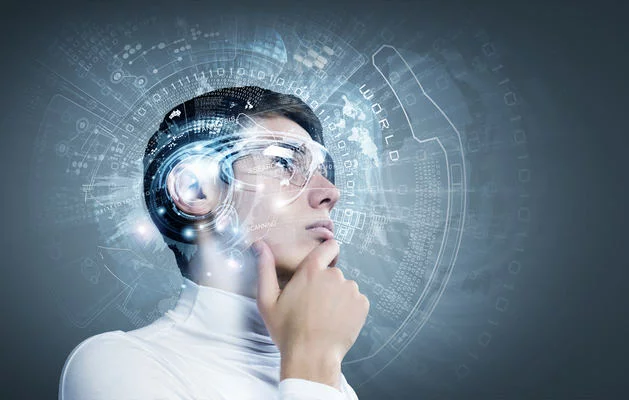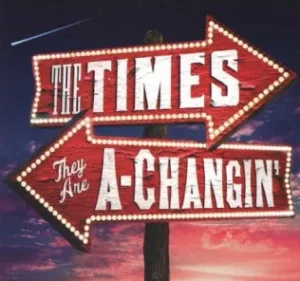Way back in 1996 — almost 30 years ago! — I wrote a paper called Consciousness As An Active Force. It became the seed from which my book Active Consciousness (2011) grew. The paper talked about the common desire of AI researchers of that time to create a machine or at least a program that could pass as human. Although I did do research in an older form of AI, I never subscribed to this science-fiction driven goal. As I wrote in my paper, “I never contracted the ‘Frankenstein syndrome’ common among many AI researchers — the desire to make a machine in ones own image.” Rather, I viewed computers merely as unconscious tools. Eventually, I left computer science altogether in 1998.
Unfortunately, as AI techniques have grown to be more and more sophisticated over the years, they have begun to at least have the semblance of approximating that original goal. Today this trend is accelerating, and much has been written about it lately. But that’s not the main point of this paper. Instead, I want to stress an important and ominous development that I believe has been the result of AI’s growing capabilities:
Not only are machines seeming to become more and more like humans, but we humans are slowly being duped into becoming more and more like machines. To put it another way, we are remaking ourselves in their image, not the other way around.
If this process continues, not only will the transhumanist agenda (the merger of man and machine) be achieved, but those who participate in it may be robbed of their much more profound and subtle power as natural human beings. The goal of this article is to serve as a clarion call to warn you about this development as it insidiously sneaks up on all of us. This is also an important goal of my third book, which will hopefully be completed by the end of 2024.
Let me backtrack first by emphasizing that, despite their uncanny ability to mimic human intelligence, today’s AI applications should never be viewed as possessing consciousness. That view is ludicrous and extremely dangerous, despite what the utopian transhumanists of Silicon Valley may believe or desire. The feats of today’s AI algorithms are still fundamentally “stupid.” They aren’t more conscious than they ever were — they are simply more complex, just as a very powerful calculator is no more conscious than a slide rule. Back in my grad school days at Stanford in the late 1970s, we all marveled at programs like Eliza, which could be used to simulate interaction with a psychotherapist. We nerdy grad students would sit at our terminals and have fun “talking” with this software “psychotherapist” simulation. But none of us thought it was a conscious, sentient being. Unfortunately, even back then, some who were not computer savvy fell under the spell of this program and began to believe that it was. A portent of the future?
Now that AI tools have become better at simulating language production and understanding, the lines are blurring for many more people. Today, the majority of non-computer-savvy individuals do not realize that applications like ChatGPT are just following a set of statistical rules but have no real understanding of the meaning of what they are writing. In addition, such programs can only utilize existing content (usually gleaned from the internet) as their knowledge base, which means that nothing fundamentally new is generated. As a result, they are not creative in the true sense.
People should also realize that what ChatGPT generates is often not even factually correct! Such programs simply generate, word by word, what’s most probable statistically, not what’s actually true. I found this out very quickly when I asked ChatGPT to tell me about “Amy Lansky.” It informed me that I went to a university that I never attended, worked at a job I never had, etc. All of this, despite the fact that this information is easily available on the internet and that there are only two Amy Lansky’s with much of an online presence. (ChatGPT’s “facts” about “Amy Lansky” are not true of the other Amy Lansky either.) In newly minted parlance, ChatGPT simply “hallucinated” this information.
I believe that many people are slowly becoming more aware of this. However, it is inevitable that clever computer scientists will continue to improve such tools even further, making their inherent limitations less and less obvious. As a result, I fear that the eventual damage to society and, as I will argue, our very humanity may be unstoppable unless we take measures to mitigate this trend now. Just imagine what would happen if governments make decisions based on such information! People, after all, can be lazy and will use whatever tools are available to them to make their lives easier. No wonder people everywhere who are asked to write a report or a paper of some kind are increasingly using ChatGPT. The application is even built into website design tools now. Because of the relentless drive of so many organizations toward profit, power, and control (which such tools help to enhance), it will be very hard to counteract what’s going on — unless we become aware of and try to restrain it.
But let me get back to my main point. In what way is our very humanity being threatened?
I’m not talking about robots killing us. I’m talking about we humans diminishing ourselves, dulling our own abilities, and even reducing our own innate consciousness and perhaps even more dangerous, our intrinsic connection to the spiritual world. In other words, we are slowly making ourselves more and more unconscious, more and more like robots. The transhumanists of Silicon Valley do not fear this outcome because they already believe that humans are nothing more than biological robots. If you already believe that you are just a robot, it’s only logical to make yourself an even more powerful robot by inserting more gadgetry into your body.
But what if this assumption is fundamentally misguided? What if we already are inherently super powerful beings who are simply not fully aware of our abilities and complete nature?
Yes, we have physical bodies and they do come with some limitations. But I believe we also possess higher energy bodies that are always linked to the higher energy worlds. These unseen aspects of ourselves are the source of many of our superpowers — intuition, inspiration, psychic abilities, will, creativity, and more. Indeed, some aspects of our greater selves continue on after our physical body dies. We may already be immortal in this sense. Many mystics, sages, shamans, and enlightened people throughout history and in every culture have shared this view. Perhaps this truth is also why some of us do intuitively sense that the move toward transhumanism may be part of a larger plan: to not only control humanity, but to rob each of us of these largely unrecognized, untapped, and more powerful aspects of our complete being.
That’s why I believe it’s imperative for us all to wake up now to the way in which the transhumanist agenda — that is, turning us into human/robot hybrids — is creeping up on us. I’ll give some examples below, some of which appeared as content in the Stanford University Magazine (which I still receive as an alumni). Sadly, Stanford is a major cheerleader for this agenda (see my article What Happened to Silicon Valley?). But so are many other major universities. Each of the developments listed below may, in itself, seem benign and even beneficial, but put it all together and you will see a pattern. Usually, the “enhancements” described below are introduced to the public as tools of convenience or as benefiting our health. But how much convenience does one need? And are we becoming any more healthy? If anything, our collective health is only degrading. The bottom line for most purveyors of such things is making more money. But it may be motivated by some nefarious goals as well.
1) Automation of nearly every kind of human endeavor or creation.
Many people are becoming aware that their job may soon become obsolete because it has been automated or mechanized. Sure, self-checkout lines at the supermarket may seem benign and convenient, but what about the jobs of the checkout clerks? What about the work of truck, cab, and Uber or Lyft drivers now being replaced by self-driving vehicles? It’s also easy to see how agriculture could eventually be fully automated. Hard manufacturing too — not just in car factories, but tools like 3-D printers will soon be able to create many other kinds of physical goods and even “food.” Buildings could also potentially be mechanically built and standardized, rendering all kinds of repair jobs automatable. Caregivers are slowly being replaced by robots in some countries too — for example, in Japan.
Now even the work of lawyers and doctors and other professionals is looking like it will eventually be on the chopping block. Creative artistic work is already suffering the same fate. Instead of just writers being replaced by tools like ChatGPT, passable artwork is now being generated by programs like Dall-E. In recent developments, video content and music is now being generated by AI programs as well, with surprisingly sophisticated results. My son Max works as a motion graphics artist and now fears that his job will soon become obsoleted. It’s also easy to see how, in the not too distant future, the likenesses of actors could be utilized to create movies in which they “star”. Already the internet is full of faked video content that can seem quite real and convincing to people.
If you believe these kinds of developments are “cool” and freeing to people, think again. Without work and a sense that they are contributing, people quickly become depressed, apathetic, suicidal, and fall prey to addictions of various kinds. And why would children even care about learning in such a world? Education is already being stymied by students cheating using automated tools, especially at the high school and college levels; teachers need to use AI tools to even detect it. Indeed, young people have now lost skills that were once common knowledge to people my own age (68); for example, the ability to perform basic arithmetic skills, cooking, sewing, repairing, and building things — in other words, the ability to survive.
When I was in seventh and eighth grades in the 1960s, girls were required to take a year of sewing and a year of cooking; boys took shop classes. Granted, these classes were segregated based on sexist divisions — everyone should have learned all of these subjects. But now that such classes aren’t being taught at all, people have lost basic human skills unless they have learned them from older family members. A friend of mine, age 40, recently asked me to teach her how to sew on a button. Sigh.
In fact, what would happen if the technology that automates all of these things suddenly becomes unavailable? Even a long-term power outage would render much of society inoperable because no one would know how to perform basic tasks anymore. An extremely simple illustration: when Steve and I were on the road a couple of years ago, we went into a minimart to buy some items. However, because the computer system was down, the clerks couldn’t sell anything — because they didn’t know how much it cost or even how to make change for cash.
Sadly, it’s not hard to imagine a future in which children won’t need to learn to read or write at all. They can simply remain glued to their cell phones or tablets, like mindless zombies. Learning disabilities are already cropping up in young children because their parents, glued to their phones, never interacted them sufficiently while they were babies. After 50 more years of this, it’s easy to see how all of humanity could be rendered so-called “useless eaters”. I recommend viewing the (albeit dated) movie “Idiocracy” and reading Vonnegut’s book “Cat’s Cradle”. As Karl Marx ominously said, “The production of too many useful things results in too many useless people.”
Think about it. If people no longer make use of their innate curiosity, creativity, and ability to learn, and they lose all feeling of contribution, how truly human will they be? Will we all simply become robot-like appendages of “the machine”?
2) Attaching devices on or into our bodies to monitor various health readings.
The cover of one Stanford Magazine featured a Stanford medical school professor with gadgetry attached all over his body. The professor spent a year monitoring dozens of his bodily readings and the article painted him as a hero leading us toward our collective monitored and “healthier” future. It doesn’t take much imagination to consider where this might lead. Soon we might have such machines monitoring every body function, injecting supplements or drugs into our bodies on demand, or worse, forcing drugs or certain food choices or other regimens upon us if we are not “compliant”. What will happen to our ability to actually feel and intuitively know when we are ill and how to care for ourselves and others? Already many medical skills once common knowledge to healthcare practitioners have been lost because they have been replaced by tests, drugs, machinery, surgery (which is also increasingly performed robotically), and enforced protocols. A typical example of a lost skill is that of “turning” a baby that is in the feet-first position before birth. Now, an obstetrician is trained to simply do a C-section.
3) “Enhancements” to our bodies or even to our mental/emotional abilities in order to compensate for possible “weaknesses”.
The most ludicrous such development, recently described in the Stanford Magazine, is the attempt to build a tool that would essentially “whisper in our ear” to help us talk with other people in awkward situations — a kind of interactive ChatGPT that helps a person interact with government officials or offer condolences at a funeral. Although the article acknowledged that the use of such tools would currently not be well received in personal relationship contexts, it also admits that such tools will eventually become easier and easier to disguise and their advice to pass as truly human-generated. What will the future look like if people never learn to connect and communicate with their fellow human beings?
Already people are too absorbed in their devices. In the San Francisco Bay Area (aka Silicon Valley) where I used to live, it has already become the norm for a group of people seated at a restaurant table to ignore one another because they are all glued to their cell phones. Events are now being thrown in San Francisco to mitigate this trend; people are invited to meet at certain venues where they are asked to put their phones into a container and actually talk to one another face to face. Sad that such a thing even needs to happen! Also sad is the fact that relationships are increasingly being trivialized and emptied by sex-apps; one need not even get to know another person anymore — simply meet online, knock on their door, have wordless sex, and leave.
Think about the kind of future these tools will engender, especially as their use expands. People will never mature and learn through the ups and downs of life experience. They will not really know how to interact with each other. So why even bother leaving the house? The COVID years exacerbated this trend and it could get much worse. Just plug in and let ChatGPT do all your coursework, earn your diploma, and interact with friends and family. Schools could simply consist of AI students and teachers interacting with one another via AI-avatars. Social media too. Gee, maybe we humans can then be freed to essentially do nothing? Perhaps take drugs or plug into games all day, with robots delivering food to us based on our body readings? Check out such a future depicted in the movie “Wall-E”.
Another recent article in the Stanford Magazine described the creation of brain implants to enable speech-disabled individuals to communicate. Similar implants have already successfully enabled paralyzed individuals to use their computer effectively and even to move physical objects. There are also efforts to commercialize such things to the general public, like Elon Musk’s Neuralink. While brain implants are wonderful for the disabled, what possible future trajectories could these technologies be tweaked to enable? Could future implants be controlled so that they overruled our wishes and modified our actions? Such devices would no longer be high-tech prostheses but tools with the eerie potential for misuse and exploitation. See the TV show “Severance” or the web series “H+”.
The truth is, science fiction is now quickly becoming science reality. Remember that many science fiction writers are skilled futurists who extrapolate current trends and write their books in order to warn us — and many of their predictions have come true. Moreover, science fiction is often used as an inspiration by scientists to invent and create, thereby bringing dystopian futures more quickly to us. If we humans are becoming more and more like the Borg (from Star Trek), will we really still be human? What capabilities (e.g., psychic abilities, creative intuition, and spirituality) will we be robbed of?
4) Genetic engineering of our cells, DNA, physical structure, and that of other living things too.
Sadly, it goes way beyond brain implants. Stanford is leading the way again, encouraging us all to eschew our very essence as natural biological beings that co-evolved with our planet over millions of years. Researchers are not only coming up with fake lab-grown foods and trying to modify plants and lower animals, but now humans as well — i.e. genetically engineering our DNA. It’s only a short hop, skip, and jump from “frankenfoods” to “frankensoldiers”. Or how about cloning humans so that they can be used for their organs? Already, ethically-compromised countries like China are harvesting the organs of people from certain religious groups — while they are still alive (!) — for use by elites or for sale to foreign countries.
To me, these developments are the most scary and ominous, and they reflect an incredible naivete and hubris on the part of the people doing this kind of research. They may believe they are just trying to help cure diseases, but in truth, such techniques will eventually be used by their high-tech, Big Pharma, and undoubtedly military funders who have more nefarious goals in mind. History is replete with such things. It is nauseating to contemplate, and more and more movies and TV shows are portending of such developments. How can humanity and elite researchers be so foolish? More importantly, how can we stop it? If you can brave it (pun intended), please (re)read Huxley’s “Brave New World.”
Maybe I don’t need to go on. The point is clear. Before you install your next Alexa-like device into your home — which listens to everything you say (how else can it respond when you talk to it?) and controls other essential functions within your home, and especially before you install a chip in your hand to make store-payments “easier” (and controllable), think twice.
It’s time to embrace who you really are as a natural human being. Start meditating. Learn new forgotten life skills. Grow and cook your own food. Create art. Learn to play an instrument. Toss aside your cell phone and other devices for at least a day or two (can you?) and visit with friends and family and neighbors in person. Enjoy live music together. Dance together. Reclaim your natural humanity. Check out alternative approaches to healing your mind and body and spirit. Go out into nature and breathe. You evolved to be here! Your body and mind and spirit are wondrous and naturally self-healing! Don’t throw it all away. Resist becoming part of the machine, a zombie, a robot. Even if you are promised immortality and worldly power, remember that your spiritual continuity and natural abilities are ultimately much more valuable and powerful. Reclaim your natural humanity!





Amy your educated insights and concerns resonated as I have too had AI fears for the generations we shall never meet. Your suggested solutions to preserve our humanism will hopefully be the norm among the population that carries on human life . Well done !!
Thank you for your knowledge, wisdom and awareness. Your article confirms a lot of the doubts I’ve had for a long time, yet wouldn’t be able to articulate as clearly and eloquently as you did. And thank you for your simple yet effective suggestions to preserve our threatened (hopefully, evolving) consciousness at this crucial time.